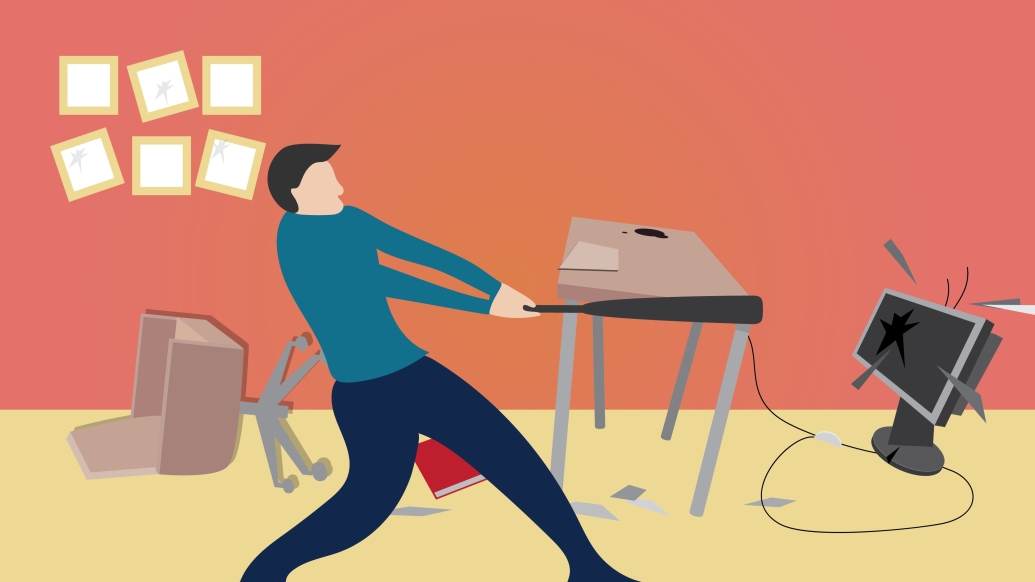A U-M psychologist explains the pitfalls of the ‘rage room’ trend, plus better ways to manage your temper.
7:00 AM
Author |

Psychiatrists say anger is one of the most misunderstood emotions.
SEE ALSO: An Easy Way to Beat Stress — and Build a Healthier Life
A recent NBC Nightly News piece called "'Rage Rooms': Where Americans Go to Take Out Their Frustrations" shows just how true this can be. Rage rooms promote getting one's anger out by smashing objects in a specific place for a set amount of time.
Ricks Warren, Ph.D., a psychologist and clinical associate professor of psychiatry and an anxiety expert at the University of Michigan, wrote an article in 1981 showing that this catharsis method is counterproductive, leading people to become angrier after a rage session than they were before. In light of this new trend, Warren discusses his and others' findings.
What is a rage room?
Warren: A rage room is a place where people go to relieve anger and stress. They are run as small businesses. Rooms are full of objects you can smash and break. Anything is available to you, from lamps to televisions to tables. Oftentimes, you are provided with a baseball bat. The purpose of the exercise is to get out anger and to relieve stress.
Why might this be harmful for patients dealing with anger issues?
Warren: Initially, people probably do feel better after smashing things, and this may be because endorphins are released because it can be a good workout. But research shows that people get even more angry dealing with anger through aggression. There is an outdated Freudian catharsis model that has been promoted by therapists which encourages "getting it out." This model has been disproven repeatedly.
A study out of Iowa State University from 2002, titled "Does Venting Anger Feed or Extinguish the Flame? Catharsis, Rumination, Distraction, Anger and Aggressive Responding," found that becoming angrier can actually be more harmful to you. In fact, it found that "the worst possible advice to give people is to tell them to imagine their provocateur's face on a pillow or punching bag as they wallop it, yet this is precisely what many pop psychologists advise people to do."
Our culture is embedded with the notion that you have to get it out. This is because anger is a very misunderstood and complicated emotion.
What are more positive ways to deal with one's anger?
Warren: There are several strategies to employ.
-
Reframing: A better way to manage anger is to try to think about your problem differently, or to reframe your thoughts. For example, if someone cuts you off in traffic, try to think that person didn't mean to do it on purpose. Look at the conditions as to why a person might behave this way. If something happens in your life, instead of being angry, just realize that things happen. Try to have a more forgiving philosophy.
-
Try relaxation and breathing exercises: Try to breathe slowly and rhythmically and relax muscles that are tense. Also, if you are speaking loudly or yelling, try to lower your voice. These suggestions are designed to change anger-related behaviors, which feed the anger.
-
Take a walk or a timeout: This can be particularly beneficial for couples. However, when you are on the walk, do not ruminate about what the person did. Be present and smell flowers. This can be a great distraction and help you begin to reframe your mindset to a more positive one.

Explore a variety of health care news & stories by visiting the Health Lab home page for more articles.

Department of Communication at Michigan Medicine
Want top health & research news weekly? Sign up for Health Lab’s newsletters today!





